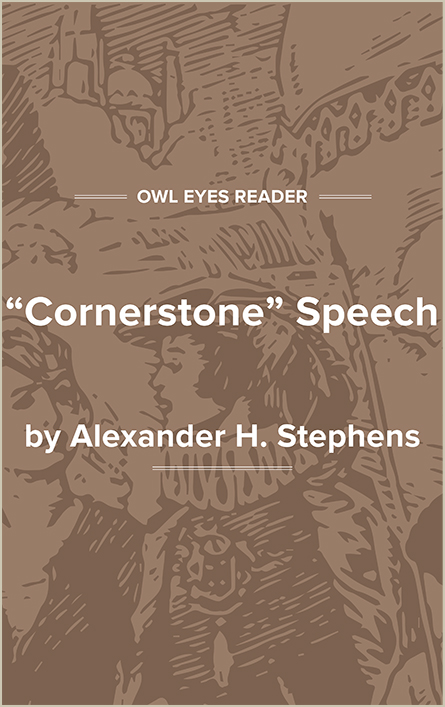BrickHouse88
Active Member
- Mar 5, 2022
- 103
- 27
- 31
Why did it have a national property tax rate then?
Follow along with the video below to see how to install our site as a web app on your home screen.
Note: This feature may not be available in some browsers.
To finance the war.Why did it have a national property tax rate then?
The United States has had a national property tax decades before the civil war though.To finance the war.
So did the Union.

But the rationale is very simple: They needed the money. In fact, the federal government levied a national property tax in 1798, 1814, 1815, 1816, and 1861.To finance the war.
So did the Union.
To finance the war.
So did the Union.
The economic basis of the entire USA was unpaid labour. The South was determined to keep and expand that regime. After all, the cornerstone of the Confederate government was the inferiority of the Black man.Hypocrite industrialized northeast states converted whaling ships into slave ships and factories became wealthy from importing and processing cotton from southern plantations. The Confederacy could never compete with the industrial might of the North. The "draft riots" in New York City proved how racist the North was when blacks were rounded up and hanged from light poles.

The Constitution was a money raising exercise as the prior Articles did not result in the collection of sufficient money to pay national debt.But the rationale is very simple: They needed the money.
Where in the bill of rights does it talk about collecting money?The Constitution was a money raising exercise as the prior Articles did not result in the collection of sufficient money to pay national debt.
Veiled way to say one hasn't read the US Constitution a few times without saying one hasn't read the US Constitution a few times.Where in the bill of rights does it talk about collecting money?
When did the Union start a national property tax?The United States has had a national property tax decades before the civil war though.

The Feudal Origins of America’s Most-Hated Tax
Property tax—one of the most criticized taxes on U.S. residents—stems from a system put in place by William the Conqueror.www.theatlantic.com
The north assembled the first standing industrial army that Jefferson warned of.Hypocrite industrialized northeast states converted whaling ships into slave ships and factories became wealthy from importing and processing cotton from southern plantations. The Confederacy could never compete with the industrial might of the North. The "draft riots" in New York City proved how racist the North was when blacks were rounded up and hanged from light poles.
Then where in the constitution does it talk about collecting money?Veiled way to say one hasn't read the US Constitution a few times without saying one hasn't read the US Constitution a few times.
I suppose you don't know the 'bill of rights' was an addendum...
Hypocrite industrialized northeast states converted whaling ships into slave ships and factories became wealthy from importing and processing cotton from southern plantations. The Confederacy could never compete with the industrial might of the North. The "draft riots" in New York City proved how racist the North was when blacks were rounded up and hanged from light poles.
There was no way the South could have expanded slavery on the eve of the industrial revolution. Lincoln should have done everything he could to preserve the Union before the Civil War. Instead he relied on bad advice and possibly some mental breakdown that told him the Civil War would barely last a couple of months. New Jersey was the last state to outlaw slavery scarcely a decade before the Civil War so it seems that slavery existed in the North before and after the Civil War. The victors write the history books and a hundred and fifty years of Lincoln propaganda taught kids that Lincoln "preserved" the Union while the Union fell apart under his watch. Historically the victors preferred not to dwell on northern slavery or violent racism while northern industrial complex became rich on the backs of slaves. .The economic basis of the entire USA was unpaid labour. The South was determined to keep and expand that regime. After all, the cornerstone of the Confederate government was the inferiority of the Black man.

The "Cornerstone" Speech Full Text - Text of Stephens's Speech - Owl Eyes
Read Full Text and Annotations on The "Cornerstone" Speech Text of Stephens's Speech at Owl Eyeswww.owleyes.org
Our new government is founded upon exactly the opposite idea; its foundations are laid, its corner- stone rests upon the great truth, that the negro is not equal to the white man; that slavery — subordination to the superior race — is his natural and normal condition. [Applause.]
The slave patrols and militia just weren't cutting it.The north assembled the first standing industrial army that Jefferson warned of.
Except at least into the new territories, as they wished to have the right. Too, there was no constitutional provision of which I'm aware that constrained the South to not expand the use of unpaid labour in the South.There was no way the South could have expanded slavery on the eve of the industrial revolution.
Pity the South attempted to steal Union property.Lincoln should have done everything he could to preserve the Union before the Civil War.
Except to supply those industries based on raw material produced by unpaid labour.There was no way the South could have expanded slavery on the eve of the industrial revolution.